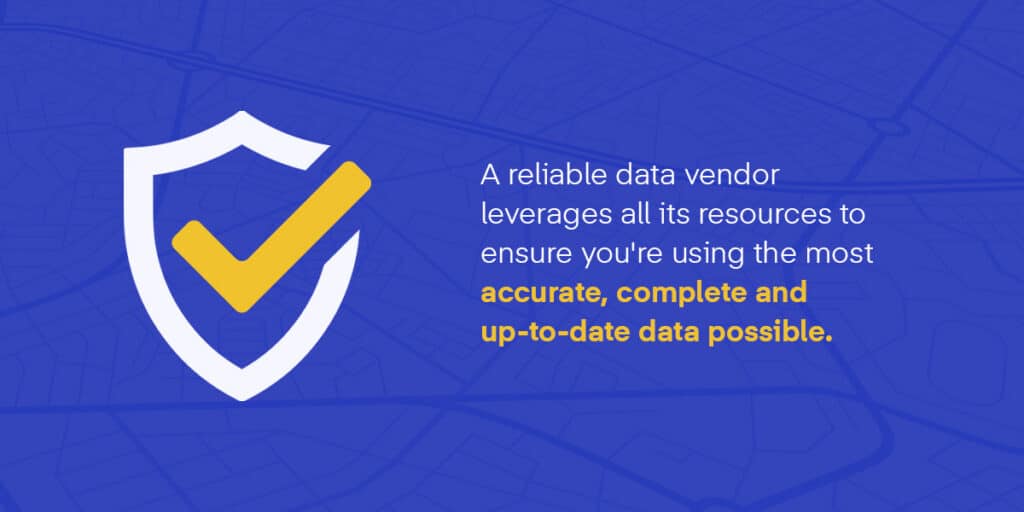Top Database Providers for High-Performance Applications
Top Database Providers for High-Performance Applications
Blog Article
Trick Functions to Try To Find When Selecting a Data Source Supplier
Selecting a database supplier is a crucial choice that can dramatically affect your company's data and operations management strategy. Among the important features to take into consideration are scalability alternatives, which make certain that your system can adapt to growing needs.
Scalability Options
When choosing a data source service provider, understanding scalability options is critical to ensuring that the picked remedy can fit future growth. Scalability describes the capacity of a database system to expand its ability and efficiency in reaction to increased demand. There are two primary sorts of scalability: vertical and straight.
Upright scalability, or "scaling up," includes enhancing a solitary web server's sources, such as CPU, RAM, or storage. This technique can be uncomplicated and economical for smaller applications but might get to a limitation where better upgrades are also pricey or impractical.
Horizontal scalability, or "scaling out," involves adding a lot more web servers to distribute the lots. This method permits for higher flexibility and can accommodate substantial rises in data quantity and customer web traffic (database provider). It is especially beneficial for cloud-based database solutions that can dynamically assign resources based upon demand
Safety And Security Procedures

When reviewing security actions, consider the application of encryption procedures (database provider). Data-at-rest and data-in-transit file encryption are necessary to ensure that sensitive information stays protected, even in the event of a protection violation. Additionally, try to find service providers that use solid verification mechanisms, such as multi-factor verification (MFA), to additionally boost gain access to control
Routine safety audits and compliance with sector criteria, such as GDPR or HIPAA, are a sign of a company's dedication to data protection. Moreover, ask about their incident action plan; a robust plan can minimize the impact of any kind of possible safety and security event.
Efficiency Metrics
Evaluating efficiency metrics is necessary for companies to guarantee that their selected data source company meets operational demands. Trick efficiency metrics include response scalability, time, and throughput, which collectively establish the performance of data source operations under varying lots.
Reaction time is important, as it mirrors just how swiftly the data source can process queries and return results. Organizations must look for metrics that suggest average feedback times during peak and off-peak hours. Throughput, usually gauged in deals per second (TPS), provides insight right into the data source's capacity to take care of high volumes of demands without performance destruction.
Scalability assesses the data source's ability to expand with the company's requirements. A robust database service provider need to show horizontal and upright scaling abilities, permitting for seamless modifications as needs vary. In addition, understanding latency, particularly in dispersed systems, can aid organizations assess the responsiveness of the data source across various geographical locations.
Client Assistance
Dependable customer assistance is a keystone of effective data source monitoring, providing organizations with the support needed to fix problems and enhance performance. When choosing a database service try this web-site provider, examining the degree of client assistance they supply is vital. A robust support system must consist of multiple networks of communication, such as phone, email, and live chat, making certain that users can access assistance whenever they require it.
Additionally, responsive assistance groups that are readily available 24/7 significantly boost the reliability of the data source solution. Trigger response times and efficient resolution of issues can considerably reduce downtime and increase overall efficiency. It is also advantageous to think about the schedule of devoted support personnel, that can offer tailored help based on an organization's certain needs.

Pricing Framework
When considering a data source company, the prices framework is an essential element that can considerably influence an organization's budget and general strategy. A clear and flexible pricing model is crucial for lining up the database costs with company needs - database provider. Organizations check should examine whether the rates is based on consumption, per individual, or a flat price, as each version can produce various monetary ramifications with time
It is very important to assess any type of additional expenses related to the carrier's services, such as data storage costs, purchase expenses, and assistance charges. Some companies may offer tiered rates, allowing scalability as the organization expands, while others may enforce stringent limitations that might end up being pricey as information needs boost.
Furthermore, organizations should take into consideration the lasting value of the database solution. While reduced preliminary costs can be appealing, they may not make up future upgrades, upkeep fees, or integration prices. Carrying out an extensive cost-benefit evaluation will assist recognize the most appropriate rates structure that balances scalability, performance, and support, eventually ensuring that the picked data source provider straightens with the company's functional and economic objectives.
Verdict
To conclude, picking a data source provider demands mindful consideration of various vital features. Scalability alternatives ensure adaptability to future development, while durable safety measures guard delicate information. Examining performance metrics allows the recognition of reliable important source databases, and easily accessible customer assistance improves the overall customer experience. A clear rates framework even more adds to educated decision-making. By extensively examining these variables, companies can make tactical options that line up with their lasting objectives and operational needs.
Picking a database company is a crucial decision that can significantly affect your organization's operations and data management approach.When picking a database supplier, recognizing scalability alternatives is critical to ensuring that the picked option can accommodate future development. When picking a data source supplier, examining the degree of customer support they supply is necessary.When thinking about a data source carrier, the pricing framework is a crucial element that can substantially affect a company's spending plan and overall approach. Conducting a comprehensive cost-benefit analysis will certainly help determine the most suitable pricing framework that balances support, scalability, and performance, ultimately guaranteeing that the chosen database supplier straightens with the company's functional and financial purposes.
Report this page